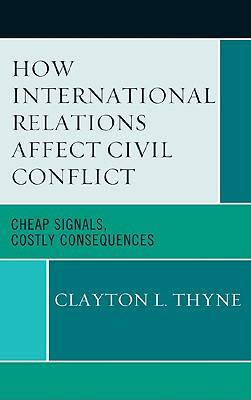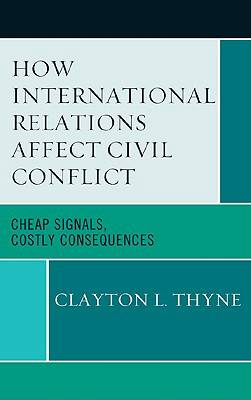
- Retrait gratuit dans votre magasin Club
- 7.000.000 titres dans notre catalogue
- Payer en toute sécurité
- Toujours un magasin près de chez vous
- Retrait gratuit dans votre magasin Club
- 7.000.0000 titres dans notre catalogue
- Payer en toute sécurité
- Toujours un magasin près de chez vous
How International Relations Affect Civil Conflict
Cheap Signals, Costly Consequences
Clayton L Thyne
196,95 €
+ 393 points
Description
This book draws on bargaining theory, signaling theory, and rational expectations to better understand how 'signals' sent from external actors affect civil wars. Clayton L. Thyne combines quantitative analyses of over 150 civil wars with in-depth case studies to show how seemingly innocuous 'cheap' signals have an enormous impact on a state's stability, the duration of fighting once a war begins, and the ultimate victor of the conflict.
Spécifications
Parties prenantes
- Auteur(s) :
- Editeur:
Contenu
- Nombre de pages :
- 254
- Langue:
- Anglais
- Collection :
Caractéristiques
- EAN:
- 9780739135464
- Date de parution :
- 01-09-09
- Format:
- Livre relié
- Format numérique:
- Genaaid
- Dimensions :
- 164 mm x 230 mm
- Poids :
- 485 g

Les avis
Nous publions uniquement les avis qui respectent les conditions requises. Consultez nos conditions pour les avis.






